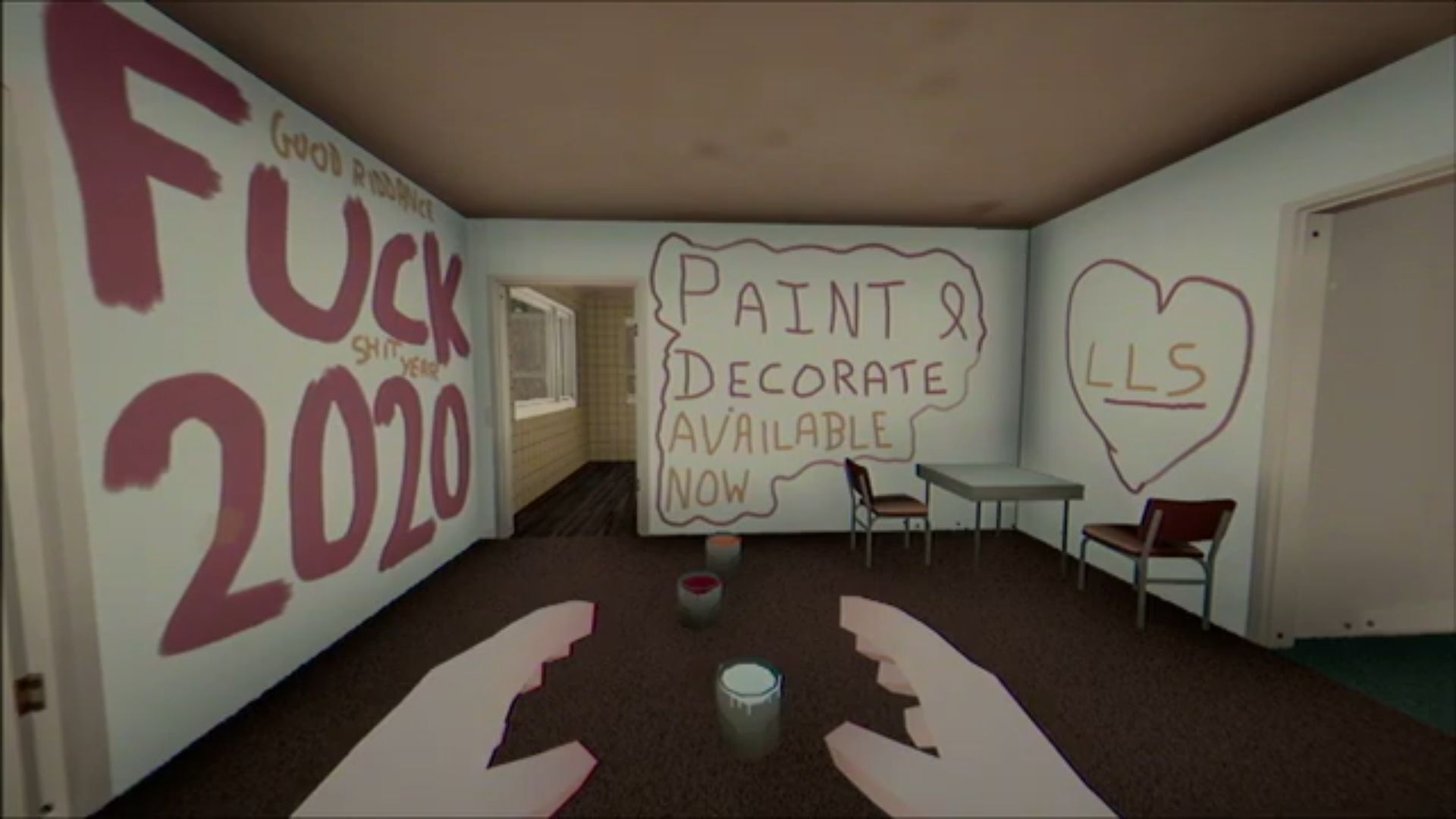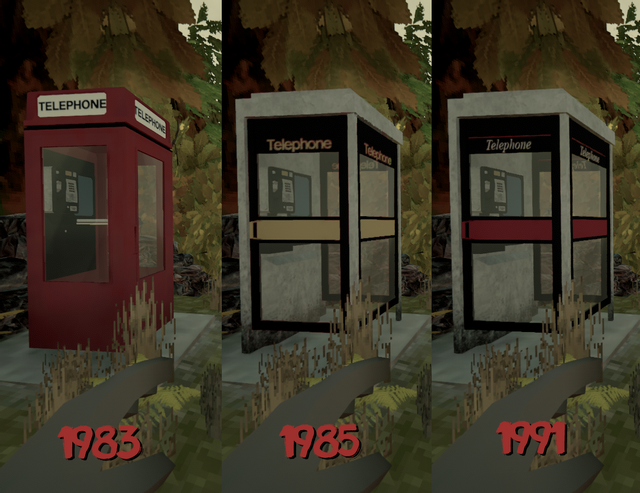Landlord's Super gets painting, decorating, and period-appropriate phone boxes
As well as the best screenshot of the day.

Landlord's Super was released on early access in April this year and, while it was pretty barebones, we found something strangely compelling about building your own estate in 80s Britain and necking a load of pints. Maybe it's just nostalgia for when pubs were still a thing.
A new update has arrived for the game that introduces painting and decorating, allowing players to paint what they wish upon plasterboard (as above) as well as chucking up wallpaper. There's also now carpets, wooden flooring, and tiles for the bathroom which according to the patch notes "protect other elements of the house from tenant damage." For a building simulator, albeit a semi-comedy, this is a pretty big deal and should make your creations a hundred times more interesting.
A complementary change is the simplification of how you actually fit plasterboard inside buildings, one of several aspects of the game I've struggled with, and there are a bunch of other quality of life changes like the ability to repair certain structures rather than having to destroy and rebuild. Then there are the tweaks that are just a delight to read about: "Urine now shows correct colour based on what the player has consumed." I should probably mention that part of this game's appeal is the ability to pee on demand, to the extent you can use it to mix cement.
The least significant but by far most satisfying aspect of this update is the addition of period-appropriate phone boxes. No longer will you have to gaze upon a 1983 model when your fantasy is to see the new world of 1985! "We apologise for this issue being present for as long as it has" says the developer, and quite right too.

The biggest gaming news, reviews and hardware deals
Keep up to date with the most important stories and the best deals, as picked by the PC Gamer team.

Rich is a games journalist with 15 years' experience, beginning his career on Edge magazine before working for a wide range of outlets, including Ars Technica, Eurogamer, GamesRadar+, Gamespot, the Guardian, IGN, the New Statesman, Polygon, and Vice. He was the editor of Kotaku UK, the UK arm of Kotaku, for three years before joining PC Gamer. He is the author of a Brief History of Video Games, a full history of the medium, which the Midwest Book Review described as "[a] must-read for serious minded game historians and curious video game connoisseurs alike."

